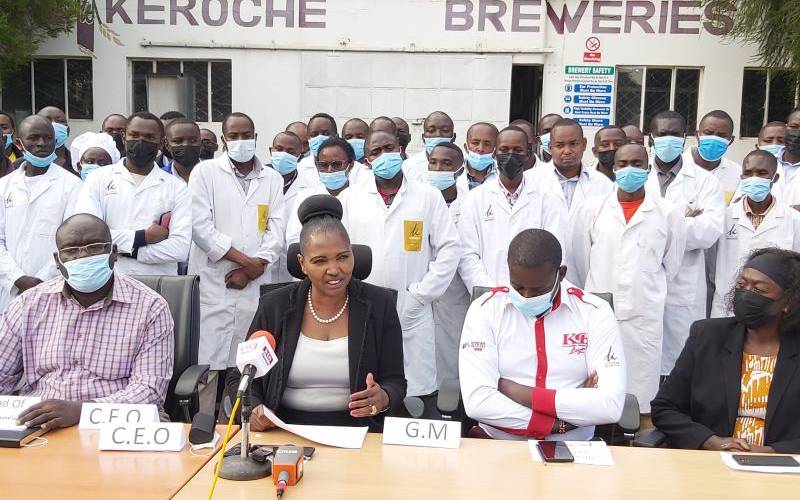×
The Standard e-Paper
Join Thousands Daily

Keroche CEO Breweries Tabitha Karanja flanked with her staff addressed the press on March 4, 2022, after KRA closed down the Naivasha based company over a Sh332m tax row. [Antony Gitonga, Standard]
It was founded on love and Sh500,000 as Keroche Breweries. That was in 1997, the year government lifted price ceilings on alcohol.